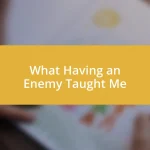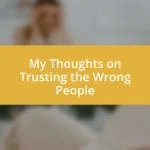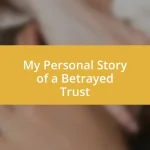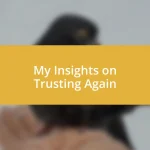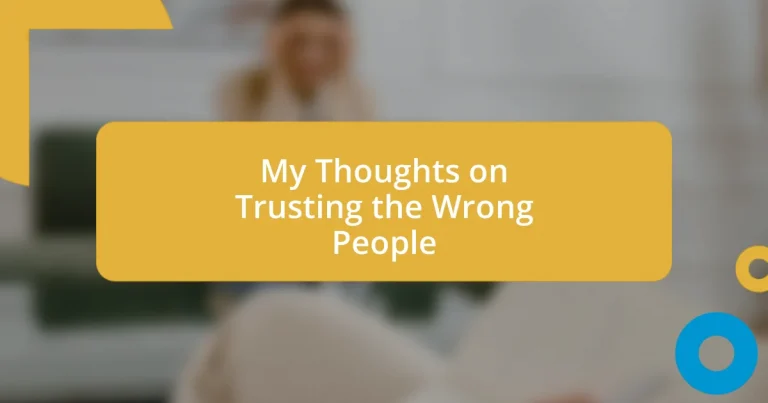Key takeaways:
- Trust is foundational in relationships but requires mutual vulnerability and emotional maturity to be maintained.
- Misplaced trust can lead to significant emotional repercussions, damaging self-esteem and overall relationships.
- Building healthy trust involves open communication, setting boundaries, demonstrating reliability, and learning from past experiences to make informed decisions about whom to trust.
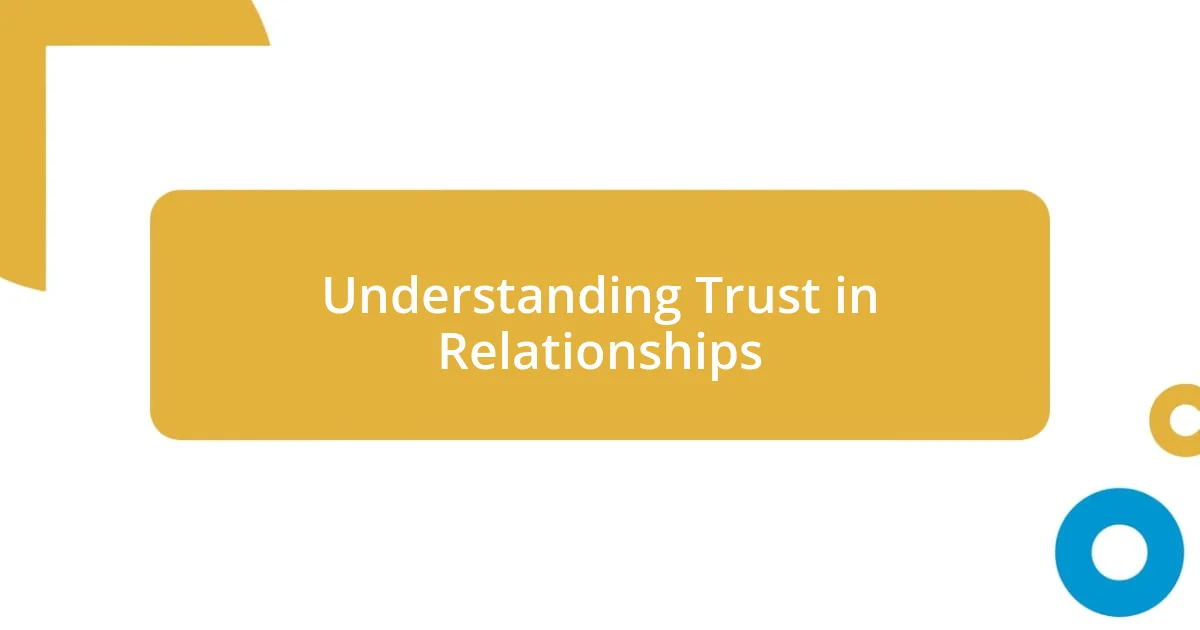
Understanding Trust in Relationships
Trust is the foundation of any strong relationship, isn’t it? I remember a time when I gave someone my absolute trust, only to discover later that they had taken advantage of it. That experience not only shook my faith in that particular person but also made me wonder about the nature of trust itself.
In my experience, building trust requires vulnerability. It’s a delicate dance of sharing parts of ourselves while hoping the other person will do the same. Have you ever felt that rush of excitement when someone opens up to you? It’s like a silent agreement; that’s when you feel the relationship grow deeper, making it all the more painful if that trust is broken later on.
Yet, not everyone is equipped to handle the responsibility that comes with trust. I’ve learned that some people may seem trustworthy at first but might not have the same level of emotional maturity. Reflecting on my past, I often ask myself: Did I miss the signs? Understanding the nuances of trust can help us navigate who’s truly worthy of it as we move forward in our relationships.
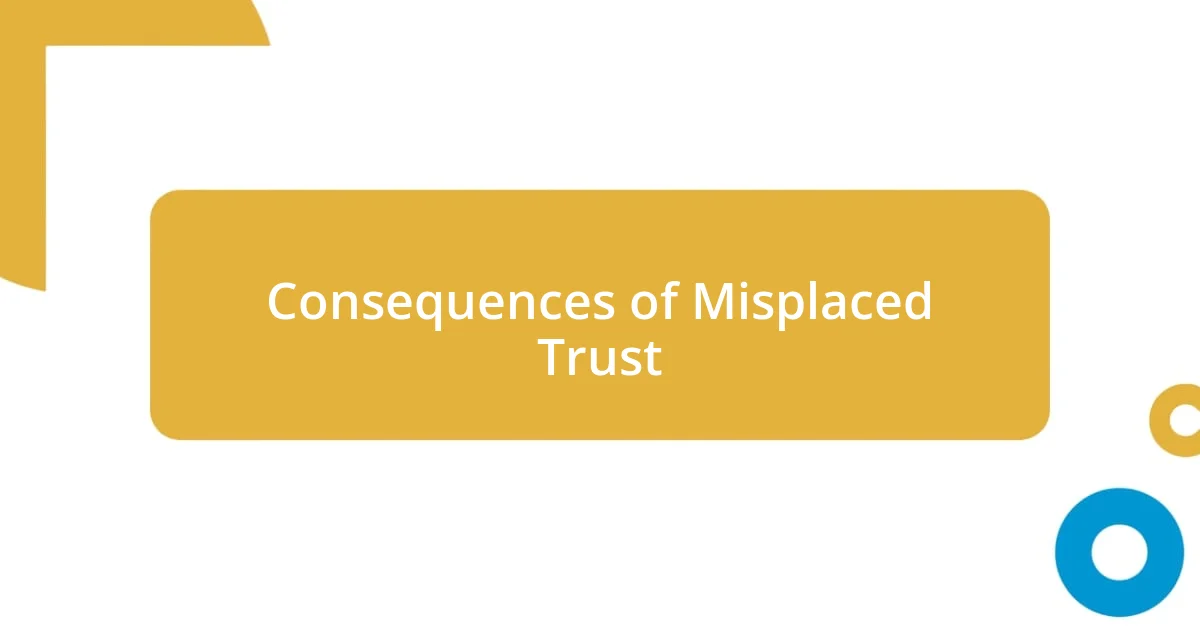
Consequences of Misplaced Trust
Trusting the wrong people can lead to more than a simple disappointment; it can have profound emotional consequences. For instance, I once entrusted a colleague with sensitive project information, fully expecting him to have my back. When he betrayed that trust, not only did the project suffer, but I felt a significant blow to my self-esteem. It was like carrying a weight that affected my confidence in decision-making for months.
The ramifications aren’t just emotional. Misplaced trust can harm our relationships with others too. I recall a situation where I had confided in a friend about personal matters, believing in her discretion. When those confidences found their way into casual conversations, it strained not just my relationship with her but also with others who felt their trust had been violated by her actions. This interconnectedness makes trust so vital, yet so fragile.
On a more practical level, misplaced trust can have serious consequences in professional settings as well. For example, I once invested my time and hard work into a team that fell apart because one member undermined our goals for personal gain. The project’s failure negatively impacted everyone involved, demonstrating how one person’s betrayal can ripple outwards, harming not just individual relationships but collective aspirations.
| Consequence | Personal Experience |
|---|---|
| Emotional Toll | Betrayal led to diminished self-esteem and confidence. |
| Damage to Relationships | Confidences broken strained friendships and trust with others. |
| Professional Setbacks | Team failures due to one member’s betrayal affected collective goals. |
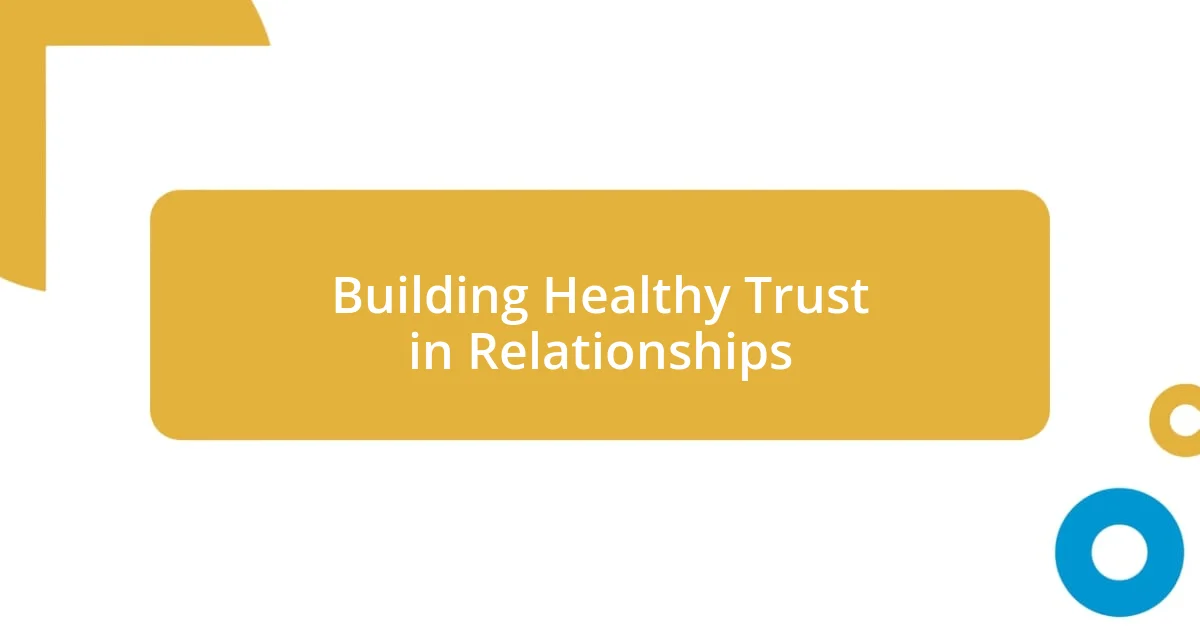
Building Healthy Trust in Relationships
Building healthy trust in relationships takes time and intention. I remember a friendship where we both agreed to be transparent, even about our fears and insecurities. That openness made us feel like partners in growth, rather than just friends. It created a safe space, allowing us to rely on each other without fear of judgment.
To foster trust in your relationships, consider these key points:
- Communicate Openly: Share your thoughts and feelings to encourage reciprocal honesty.
- Set Boundaries: Establishing personal boundaries signals respect and reinforces trust.
- Practice Reliability: Consistently show up and follow through on your commitments to cultivate dependability.
- Show Vulnerability: Being open about your own struggles invites others to share, deepening your connection.
- Give Support: Be there for others in their times of need, nurturing a sense of mutual trust.
Building trust often feels like a balancing act, but when both sides invest in the process, it can lead to incredibly rewarding relationships.
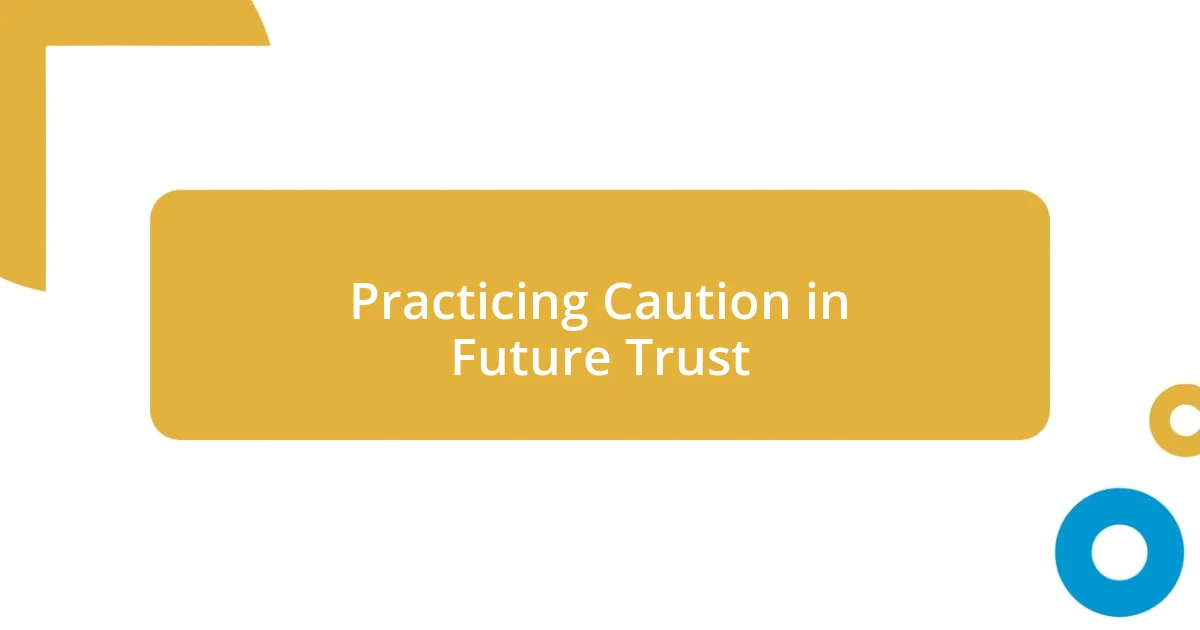
Practicing Caution in Future Trust
To practice caution in future trust, it’s essential to reflect on past experiences and learn from them. I recall a time when I rushed into trusting a new acquaintance, only to discover later that they had a history of deceit. This taught me the importance of taking my time to really understand a person before opening up. It makes me wonder, how often have we overlooked red flags in our eagerness to connect?
Another crucial step is setting clear boundaries. I’ve found that being transparent about my limits not only protects me but also fosters mutual respect. For instance, I once shared my expectations with a colleague early on in a project, which helped prevent misunderstandings down the line. It’s like having a roadmap; if both parties know where they stand, it becomes easier to navigate challenges together.
Finally, it’s vital to remain vigilant and evaluate the behaviors of those we let into our circle. I remember hesitating to trust a friend after noticing subtle manipulations in our conversations. My instincts were right; eventually, I learned they weren’t as supportive as I initially thought. Trust shouldn’t be given blindly; it should be earned through consistent actions that align with our values and expectations. Wouldn’t you agree that trust is worth taking the time to cultivate carefully?
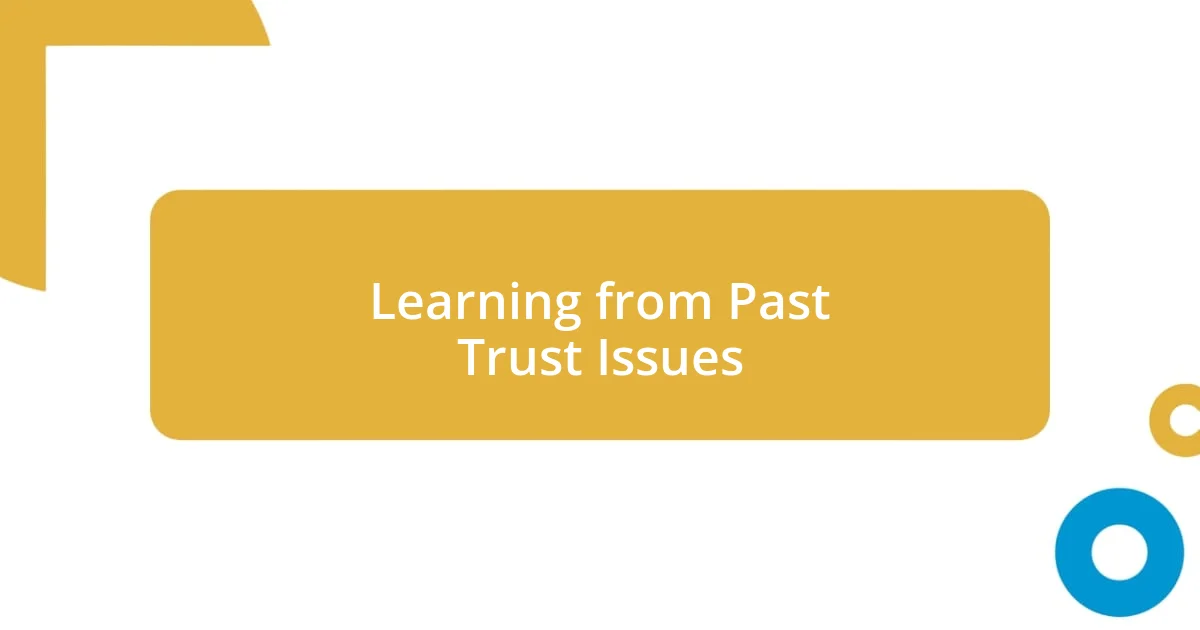
Learning from Past Trust Issues
Reflecting on past trust issues can be quite illuminating, and I’ve certainly had my share of eye-opening experiences. There was a time when I completely overlooked a friend’s inconsistency in keeping promises. At first, I brushed it off as life getting in the way, but eventually, I felt let down. This taught me that consistent actions are a telling sign of someone’s reliability and it made me wonder—why do we often excuse behaviors that don’t align with our expectations?
Moreover, assessing how these trust issues affected my self-esteem was equally important. I noticed that after being disappointed by a few people I trusted too soon, I began second-guessing myself. The emotional strain prompted me to question my judgment; I found it beneficial to journal these feelings. It became a helpful practice to reconnect with my values and to document the traits I seek in trustworthy individuals. Have you ever felt the need to realign your expectations after a trust-related setback?
Ultimately, I’ve realized that learning from these experiences requires a proactive approach. As I encountered different situations, I started implementing a “trust triage”—a method of categorizing people based on past interactions. This practice not only helped me gauge who to trust but also served as a protective measure against future heartaches. Through this lens, I came to understand that building trust is a continuous journey, where each lesson shapes my ability to connect with others on deeper levels.

